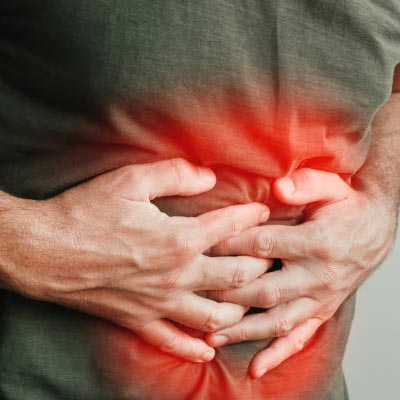What are Gastritis & Ulcer Disease?
Gastritis and ulcer disease are common gastrointestinal conditions that can cause discomfort and affect the quality of life for those affected. Understanding the symptoms, causes, and treatment options for these conditions is essential for effective management and relief. In this comprehensive guide, we'll delve into the medical terminology surrounding gastritis and ulcer disease, explore their symptoms, and discuss various treatment approaches.
What is Gastritis ?
Gastritis refers to inflammation of the stomach lining, which can be acute or chronic. This condition can be caused by various factors, including:
- Helicobacter pylori (H. pylori) infection : This bacterium is a common cause of gastritis and is often associated with peptic ulcer disease.
- Nonsteroidal anti-inflammatory drugs (NSAIDs) : Prolonged use of NSAIDs such as aspirin and ibuprofen can irritate the stomach lining and lead to gastritis.
- Excessive alcohol consumption : Alcohol can irritate the stomach lining and contribute to inflammation.
- Stress : While stress alone does not directly cause gastritis, it can exacerbate symptoms in individuals already prone to the condition.
- Autoimmune diseases : In some cases, the body's immune system may mistakenly attack the stomach lining, leading to autoimmune gastritis.

Symptoms of gastritis may include
- Abdominal pain or discomfort : This may be felt as a dull ache or burning sensation in the upper abdomen.
- Nausea and vomiting : Some individuals with gastritis may experience nausea or vomiting, particularly after eating.
- Loss of appetite : Gastritis can lead to a decreased desire to eat.
- Bloating and belching : Excess gas and bloating may occur as a result of gastritis.
Diagnosis of gastritis typically involves a combination of medical history review, physical examination, and diagnostic tests such as endoscopy and blood tests to detect H. pylori infection or assess markers of inflammation.
Treatment of gastritis aims to reduce inflammation, alleviate symptoms, and address any underlying causes. This may include
- Medications : Proton pump inhibitors (PPIs) and H2-receptor antagonists are commonly prescribed to reduce stomach acid production and promote healing of the stomach lining.
- Antibiotics : In cases where H. pylori infection is present, a combination of antibiotics may be prescribed to eradicate the bacteria.
- Avoidance of triggers : Individuals with gastritis are often advised to avoid irritants such as NSAIDs, alcohol, and spicy foods.
- Stress management : Techniques such as relaxation exercises, mindfulness, and therapy may help reduce stress and improve symptoms.
What is Ulcer Disease ?
Peptic ulcer disease (PUD) refers to the formation of open sores, known as ulcers, in the lining of the stomach or the first part of the small intestine, known as the duodenum. Like gastritis, peptic ulcer disease can be caused by factors such as H. pylori infection, NSAID use, and excessive alcohol consumption.
Symptoms of peptic ulcer disease may include
- Abdominal pain : This is the most common symptom of peptic ulcers and is often described as a burning or gnawing sensation that occurs between meals or during the night.
- Nausea and vomiting : Some individuals may experience nausea or vomiting, particularly if the ulcer is located in the stomach.
- Unintended weight loss : Chronic peptic ulcers can lead to decreased appetite and weight loss over time.
- Bloating and belching : Excess gas and bloating may occur, similar to gastritis.
Diagnosis of peptic ulcer disease involves similar methods as gastritis, including endoscopy, blood tests, and stool tests to detect H. pylori infection.
Treatment of peptic ulcer disease aims to promote ulcer healing, relieve symptoms, and prevent complications such as bleeding or perforation. Treatment options may include:
- Medications : PPIs, H2-receptor antagonists, and antacids are commonly prescribed to reduce stomach acid production and protect the lining of the stomach and duodenum.
- Antibiotics : If H. pylori infection is present, a combination of antibiotics may be prescribed to eradicate the bacteria.
- Prostaglandin analogs : These medications help protect the stomach lining by increasing mucus production and promoting blood flow.
- Lifestyle modifications : Avoiding NSAIDs, alcohol, and smoking can help reduce irritation to the stomach lining and promote healing.
In severe cases or those resistant to medical treatment, endoscopic or surgical interventions may be necessary to address complications or remove the ulcer.
Gastritis and ulcer disease are common gastrointestinal conditions that can cause significant discomfort and affect quality of life. By understanding the symptoms, causes, and treatment options for these conditions, individuals can better manage their symptoms and prevent complications. If you experience persistent or severe abdominal pain, nausea, or other concerning symptoms, it's important to consult with a healthcare professional for proper evaluation and management.
